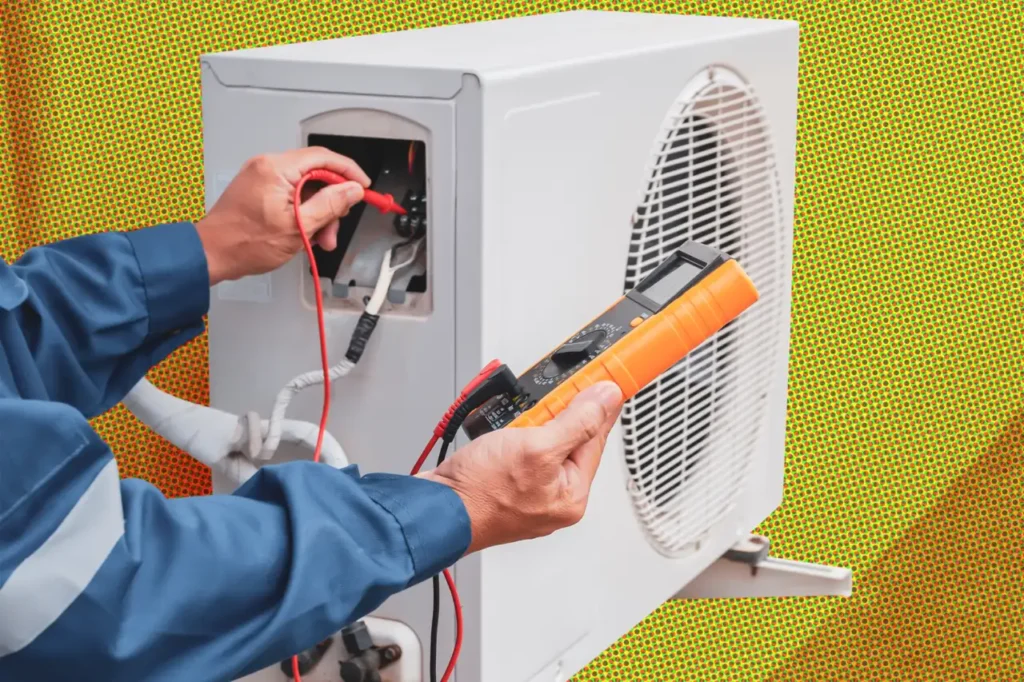Introduction
At first, it might be a faint rattle. Or a warm spot in a cool room. Maybe your system takes a little longer than usual to kick on. It’s easy to brush it off, tell yourself you’ll deal with it later—after the weekend, after the next big bill, after you’ve had time to think.
But when it comes to your HVAC system, small problems don’t stay small for long.
If you notice early signs of trouble, a quick search for AC repair near me can help you find a local technician who can diagnose and fix the issue before it worsens. Delaying HVAC repairs—whether it’s your AC, your furnace, or a component in between—can end up costing you far more than the price of a service visit. From skyrocketing energy bills to full system breakdowns, putting off a fix often triggers a chain reaction of avoidable problems.
In this article, we’ll unpack the hidden costs of ignoring HVAC issues, explain why timely intervention matters, and show how partnering with a knowledgeable HVAC contractor can save you time, money, and peace of mind.
Higher Energy Bills Without Warning
One of the most immediate and least noticeable consequences of a struggling HVAC system is increased energy usage. A failing AC unit or furnace works harder to maintain your set temperature, using more power in the process.
You may not notice anything physically wrong at first—just that your utility bills are creeping higher every month. And because the system is still “working,” it’s easy to ignore the signs. But over time, inefficient operation eats into your budget and stresses the system even further.
Instead of waiting for the spike to become obvious, homeowners should treat gradual changes in energy use as early warnings—ones best assessed by a professional before they turn into more costly repairs.
Repair Costs Multiply Over Time
Delaying repairs rarely means fewer problems later. Quite the opposite: minor issues that could have been fixed quickly often escalate into major mechanical failures.
Consider a few common examples:
- A dirty air filter leads to reduced airflow, which overworks the blower motor and causes it to fail.
- A worn fan belt makes noise, which is ignored, and then snaps—leading to a full system shutdown.
- A cracked heat exchanger goes unaddressed and eventually leaks carbon monoxide or damages internal components.
Had these problems been addressed early, the cost would have been minimal. But in waiting, you may face part replacements, labor-intensive service, or even a complete furnace repair or AC repair job.
Shortened System Lifespan
HVAC systems aren’t built to run under stress. If you ignore early signs of trouble and continue to operate your system at full capacity, you’re shortening its overall lifespan.
Letting damaged parts remain in service leads to unnecessary wear and tear throughout the unit. Just like driving with bad brakes affects more than just your pads, a struggling furnace or AC will eventually take other components down with it.
The average furnace or air conditioner should last 15 to 20 years with regular maintenance and prompt repair. Delay those repairs too often, and you may find yourself needing a full furnace installation or AC installation far earlier than expected.
Safety Risks Increase Over Time
It’s not just about efficiency or comfort—it’s about safety.
Some HVAC problems, particularly with gas-powered furnaces, can pose real hazards. Cracks in the heat exchanger, electrical faults, or refrigerant leaks can put your home and health at risk.
For example:
- A furnace with a cracked heat exchanger may release carbon monoxide, an odorless gas that can be lethal in high concentrations.
- An AC system with a refrigerant leak can expose occupants to toxic chemicals or lead to compressor failure.
- Faulty wiring or overheating motors pose a fire risk.
By bringing in a licensed HVAC contractor at the first sign of trouble, you’re not just preserving your system—you’re protecting your household.
Comfort Disruptions During Peak Seasons
Murphy’s Law applies to heating and cooling systems: they often fail at the worst possible time.
Delaying repairs in spring or fall may seem harmless—until your system gives out during a heatwave or deep freeze. Emergency AC repair or furnace repair services are harder to schedule during peak seasons, and you may find yourself without temperature control for days while waiting for parts or technician availability.
Suddenly, what could have been a quiet afternoon visit turns into a household emergency.
Preventive scheduling and timely repairs ensure your system is ready for the extremes—not scrambling to catch up when comfort matters most.
Increased Indoor Air Pollution
Your HVAC system isn’t just responsible for keeping your home hot or cold—it also affects air quality.
When systems aren’t operating efficiently, they can circulate dust, pollen, mold spores, and even combustion byproducts. Dirty filters, clogged ducts, and malfunctioning components turn your air into a cocktail of irritants.
The result? Headaches, allergies, fatigue, and poor sleep.
This is particularly harmful in households with young children, elderly individuals, or anyone with asthma or respiratory issues. Addressing mechanical issues early helps keep the air you breathe clean, fresh, and safe.
Total Replacement Becomes Inevitable
The longer you put off small repairs, the more likely it becomes that AC installation or furnace installation is your only option.
When systems fail catastrophically—due to ignored warning signs, repeated overuse, or accumulated damage—replacement becomes unavoidable. Not only is this expensive, but it’s also disruptive and time-consuming.
By contrast, regular inspections and addressing early concerns keep your system on track and replacement firmly in the future—not your immediate to-do list.
Peace of Mind Is the Biggest Gain
At the end of the day, having a reliable HVAC system means more than temperature control. It’s about knowing that your home is efficient, safe, and ready to handle whatever weather comes your way.
Scheduling regular service and acting quickly when problems arise puts you in control of your comfort, not at the mercy of surprise breakdowns.
Companies like Elevate Heating & Cooling help homeowners stay ahead of the curve, offering insight and service that prevents small issues from becoming major headaches. Whether it’s a basic repair or guidance on upgrading your system, proactive action is always more affordable than reaction.
Final Thoughts
Postponing HVAC repairs may feel like a harmless delay—but the true cost adds up quickly. From higher utility bills to system failure, safety risks, and health concerns, waiting too long often means paying more later.
By paying attention to early signs of trouble and consulting with an experienced HVAC contractor, you can avoid unnecessary stress, expense, and discomfort. Don’t let today’s small problem become tomorrow’s full-blown crisis. Make the call, schedule the visit, and protect your system—and your sanity—before it’s too late.




